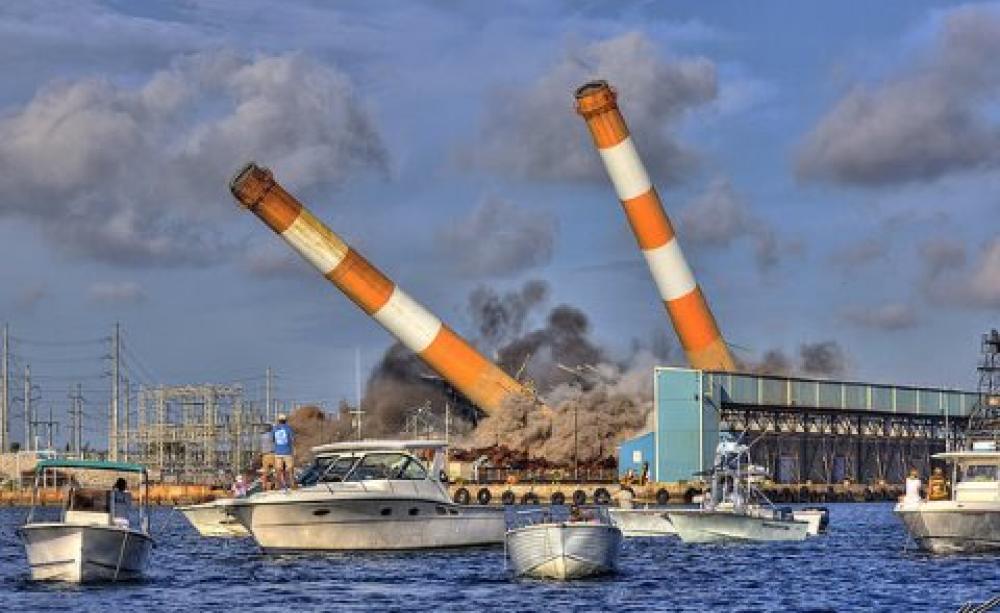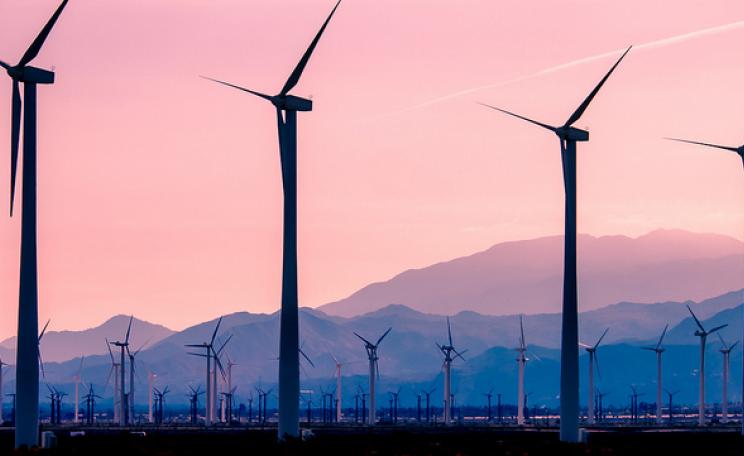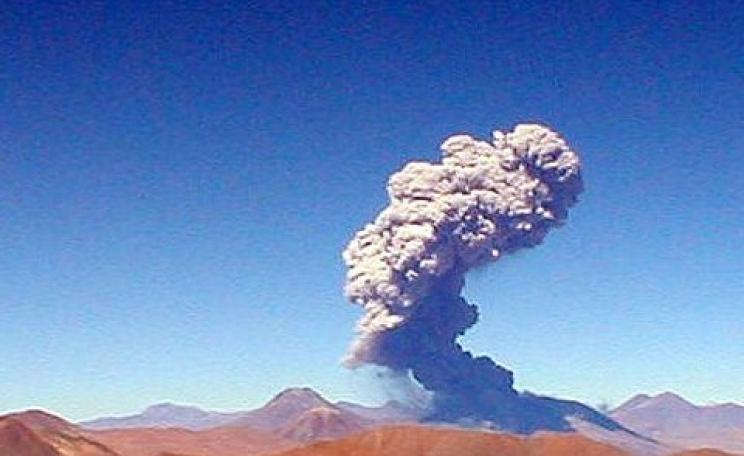Without the smoke and the soot, the filth in the air, we will see the sun's true power. The climate change that we have built will unfold above us in all its dreadful splendour.
A popular Einstein misquote is to define insanity as doing the same thing, whilst expecting different results.
We're all hoping for a breakthrough deal at the next week's UN Climate Summit in New York.
But despite all the banners and the shouting from campaigners; and despite all the dire warnings from scientists, we all know that a real, enforceable deal is extremely unlikely.
Even the subtitle of "Catalysing Action" sounds like Orwellian doublespeak for failure - much as countries with 'Democratic' in their names tend to be anything but. It would indeed be insane expect anything other than a continuation of earlier patterns of unscientific fudges and collective inaction.
A perfect storm ...
Why's it so hard? Climate change is the perfect environmental crisis. It's hard to imagine anything more challenging to solve politically. It affects everyone, but yet everyone is responsible.
There is of course a massive imbalance between apportionment of blame to the worst polluters, and the impact of effects on the worst affected. But this imbalance is not enough to prevent the familiar, glib arguments of shared responsibility.
Furthermore, the pollution is both pervasive and invisible, and the impacts are deferred - so it always feels like tomorrow's problem. The solution at once seems simple, and yet also impossible - we must collectively use less energy and pay more for each Joule we use.
Mitigation has so far failed to get us anywhere near a safe climate pathway. The 'inconvenient truth' for environmentalists is that even if we stopped emitting tomorrow, the world will suffer ongoing climate change for centuries - because the CO2 doesn't magically vanish when we stop making it, and the oceans heat very slowly.
Of course, we won't stop emitting tomorrow. Even were we to begin a radical programme of decarbonisation, emissions would continue for many years.
Power firms' profits depend on it. Politicians' votes depend on it. The global south relies on it as the quickest, most direct route out of poverty. Your car and your kettle rely on it. There is no magic wand. As Margaret Thatcher so famously said, "You can't buck the market."
Without the smoke and the soot, the filth in the air, we will see the sun's true power. The climate change that we have built will unfold above us in all its dreadful splendour.
A screwdriver short of a toolbox?
In spite of this, the IPCC has doomed itself to a pattern of failed groupthink. Their false optimism has been consistent on emissions and effects, with even their 'safe' temperature changes likely committing us to dramatic sea level rise.
I have a long personal history of amateur environmental campaigning, demanding the action on mitigation that we desperately need. Nevertheless, by around 2010, I'd realised that the green movement was all out of ideas.
We needed a new tool in the toolbox, and I began to focus my work on the concept of geoengineering. This is a technology with two prongs: Solar Radiation Management (SRM - using fine airborne particles to partially block the sun); and Carbon Dioxide Removal (CDR - pulling CO2 out of the air).
Geoengineering can potentially buy us time whilst we decarbonise our economies, masking the worst effects of climate change. Overwhelmingly evidence from modelling experiments indicates that well-managed SRM would assist in stabilising the climate system that we have done so much to disturb.
Further into the future, CDR could allow us to get the CO2 levels down to sustainable levels, something that would take millennia if left to natural processes. Climate change is almost certain to cause a regrettable wave of extinctions along the way - but despite this, we could end up in the mid 22nd century with a planet which has largely been 'cured' of global warming.
If you think that's a long way away, take a train. You'll be riding along on the Victorians' foresight and intergenerational investment. It can be done.
There is no licence to pollute
Meanwhile, what about those pesky emissions? Don't buy the right-wingers' nonsense. Geoengineering is not a 'Get out of jail free' card. It does not, in the near term, solve the problem - not least because of ocean acidification.
It does not give us a licence to pollute - morally or environmentally. Why, then, will geoengineering help us out of this funk?
The answer is simple: it won't. Geoengineering doesn't accelerate decarbonisation of our economies. Sadly, neither does talking about mitigation. For all the hot air and paper and promises, we're still building airports and coal-fired power stations, and we're still breeding like rabbits on Viagra.
Notwithstanding local initiatives, nothing politicians can say or do will really make a dent in any of this, on a global scale. But one thing surely will deliver the monumental shift we need: the market. The fossil age is not quite over, but the writing is on the wall.
The manifest destiny of solar power
Solar PV is the benchmark - it isn't fussy about scale or location, and there are no capacity limitations. Already, open market solar energy is the same price as grid electricity in many of the sunnier developed economies.
In the poor countries that lack an electricity grid, this comparison is meaningless. Here, renewables are really the only game in town (or village).
We're about to see an explosion in renewable energy. Subsidies and state investment have arguably helped get the industry to where it is at present, but they will not be delivering the energy revolution.
This forthcoming boom is down to simple economics, and there's nothing much anyone can do to stop or accelerate it. Solar costs are falling steadily and reliably. This means that the incentives to install solar will increase over time, and an already rapid expansion can only grow in pace - steadily crowding out fossil fuels.
As related technologies mature, such as long distance transmission, smart grids, and grid storage systems, the intermittency of renewables will become less of an issue. These technologies are not merely speculative, but largely inevitable.
If you have an electric car, why wouldn't you use it to power your home when the cost of electricity spikes? Why wouldn't a power company charge more for power at 7pm than at 4am?
Yes, we'll still need an energy source for the depths of a European winter (probably gas for a while), and planes will still need kerosene to fly - but on a global scale, this won't unpick the renewables revolution.
Fossil power - the end is nigh
But what about all that fossil capacity we have? Where will all the diesel cars and coal-fired power stations go? On the scrapheap, that's where. It's true that once you've built a coal plant, it's going to keep running, regardless of whether the capital costs of construction can be repaid or not.
The owner may go bust, but the liquidators will sell it to someone else. However, this new owner will also find that coal, spares, and labour are only available at a price. Eventually, that price is going to be higher than the value of the resulting electricity.
Capital costs are only around a third of coal power costs, so the price can only fall around another third after grid parity is achieved, before the coal plant will end up empty and derelict. (I'm using coal as shorthand for all fossil fuels, because it's nearly 2/3 of fossil grid mix.)
That is how the fossil age will end. Not with a political bang, but with an economic whimper. The fossil energy infrastructure will stand idle, a derelict relic of a bygone era - spookily desolate, like dark satanic mills of Northern England or gold rush towns of the American west.
Firms will go bust, investors will lose their money, and workers will lose their jobs. Instead of welcoming this transition, the constituency politicians will wail and gnash their teeth, and try desperately to save this industry from its inevitable doom.
They will cry that something must be done - but whatever is done, nothing will work - because you can't buck the market.
And that's when our real problems begin
And then we will see the true horror. The climate change we see today is a pale shadow of what we've caused - because the sky is full of pollution, which acts to shield us from the sun's rays. It's like we're already doing some accidental geoengineering.
When the fossil fuel economy falters, this will no longer be the case. Without the smoke and the soot, the filth in the air, we will see the sun's true power. The climate change that we have built will unfold above us in all its dreadful splendour.
We will then, collectively, admit our folly - and start geoengineering. And there's nothing anyone can do about it - unless they piously and foolishly try and sit out this new, supercharged climate change.
So yes: we should recycle; and ride our bicycles, walk into town, and turn out heating down. I do, and you can too. We should also campaign to move taxes away from labour, sales and profits, and onto carbon.
Just like the subsidies which have kick-started the renewables industry, this will accelerate the transition from fossil to renewables somewhat. But it will not cause it, nor can failure prevent it - because you can't buck the market.
Soon, our lives and futures will depend on geoengineering
So whilst you're waiting for the market to deliver the renewables economy, you should stop worrying, and learn to love geoengineering.
Loving geoengineering means supporting those scientists who are trying to understand and develop it: ensuring that they have adequate funds to work; and the permissions they need to carry out vital open-air experiments to test it.
Because without that, once the fog clears at the end of the fossil age, we'll be reliant on half-finished, unpredictable technology to protect us. And that is something that's really worth worrying about.
Andrew Lockley is an independent consultant working with early stage technology firms, and researcher interested in geoengineering. His current research focuses on ocean albedo modifications, ballistics for SRM particle delivery, gun system design, the legal issues around governance and compensation, and the use of computer games to research public opinions.
Twitter: @geoengineering1





